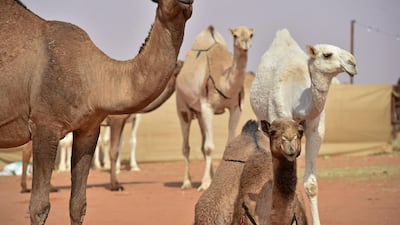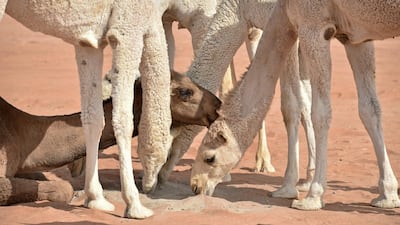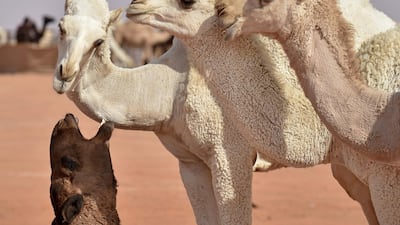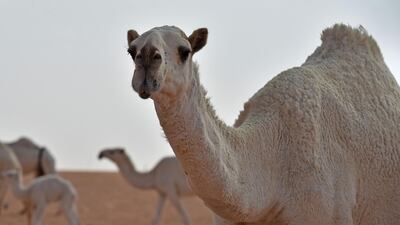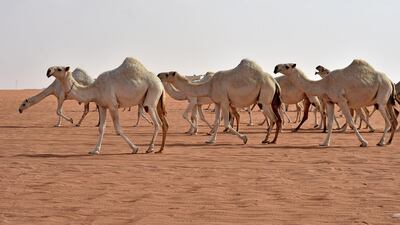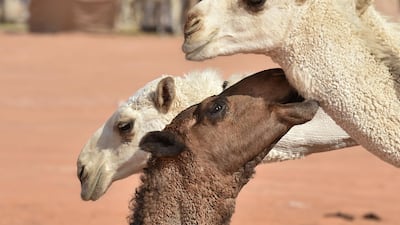Researchers in the UAE have shed new light on why camel milk is beneficial for people with diabetes, in a study which could boost future efforts to manage the disease.
The drink's positive effects on blood sugar are well established – including reducing fasting levels, lowering insulin resistance and improving lipid profiles among diabetic patients.
A UAE study sought to better understand the Middle East staple's role in fighting diabetes by examining at a molecular level to see how cells react.
Their work showed how bioactive peptides – the building blocks of proteins – extracted from camel milk, have positive effects on the human insulin receptor and glucose transport in cells.
The researchers said the findings are highly promising and may even lead to a breakthrough in the fight against diabetes using drugs developed from camel milk.
"Camel milk's therapeutic properties against diseases such as diabetes and cancer have been widely studied and reviewed in the past decade," wrote the researchers in the Journal of Dairy Science.
The study, entitled Molecular Basis of the Antidiabetic Properties of Camel Milk Through Profiling of its Bioactive Peptides on DPP-IV and Insulin Receptor Activity was led by Dr Mohammed Ayoub's lab from the Department of Biology at United Arab Emirates University and Dr Sajid Maqsood's lab from the Department of Food Science at United Arab Emirates University, with support from Zayed Centre for Health Sciences.
It is "widely noted that camel milk consumption is beneficial in reducing the dose of insulin needed to induce glycemic control and improves fasting blood glucose", they wrote.
“This moves research one step further in the identification and characterisation of the anti-diabetic agent contained in camel milk and opens interesting perspectives for the development of new anti-diabetic drugs from camel milk products.”

Around one in five people in the UAE suffer from diabetes, a condition that can cause multiple serious health problems, such as heart disease and damage to organs, including the eyes and kidneys.
Experts expect the number of people with the condition to double within the next 30 years, so new treatments are crucial to managing the condition.
Compared to other milk, camel milk contains less sugar and cholesterol, and has a higher mineral content.
It has also been recognised for having “potent antimicrobial and anti-inflammatory properties,” and may protect against the development of cancer.
In 2019, researchers in Jordan embarked on a study to examine the effect of camel milk on the development of colorectal cancer in mice.
During the study, 30 mice were given an injection and fed a substance that promoted the development of colorectal cancer.
Some were also given camel milk whey – the watery liquid left behind after curd is removed – another group was given cow milk whey, and a further group received neither.
Six out of 10 mice not given any whey were found to have tumours in their colon, while six out of eight of those fed cow milk whey had tumours.
Among the mice that had been given camel milk whey, however, just one out of eight had tumours.
